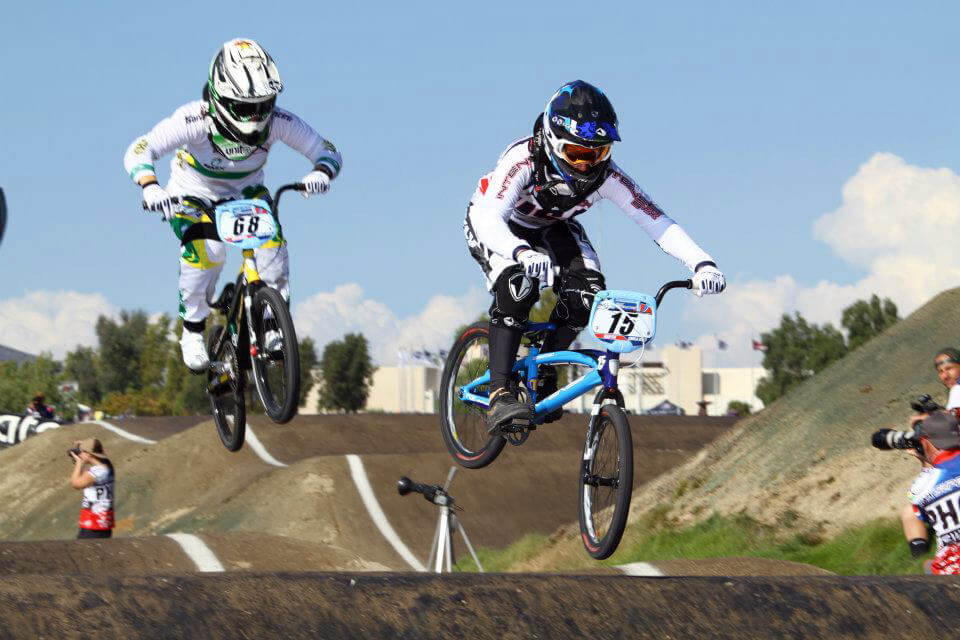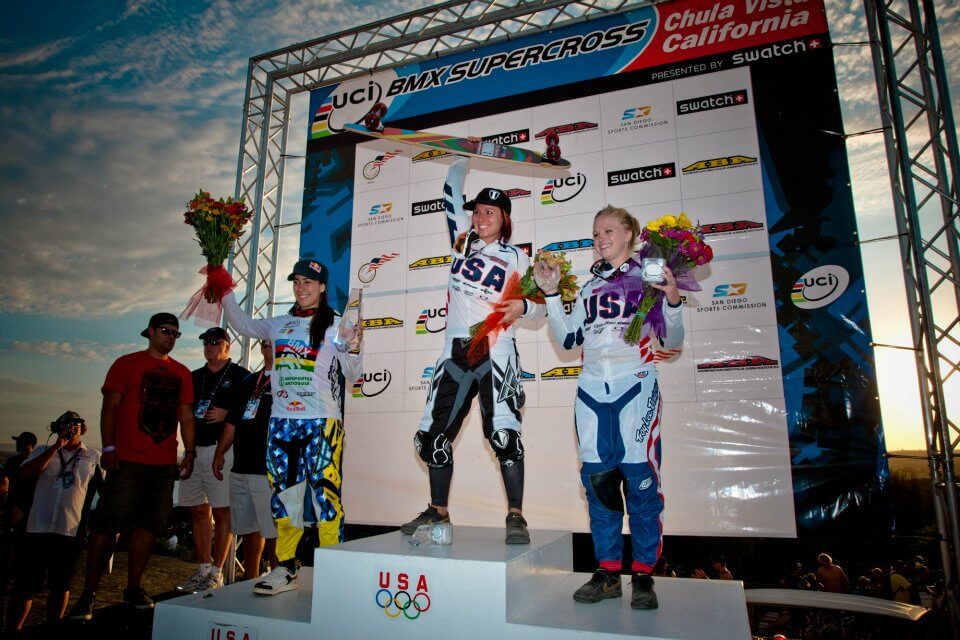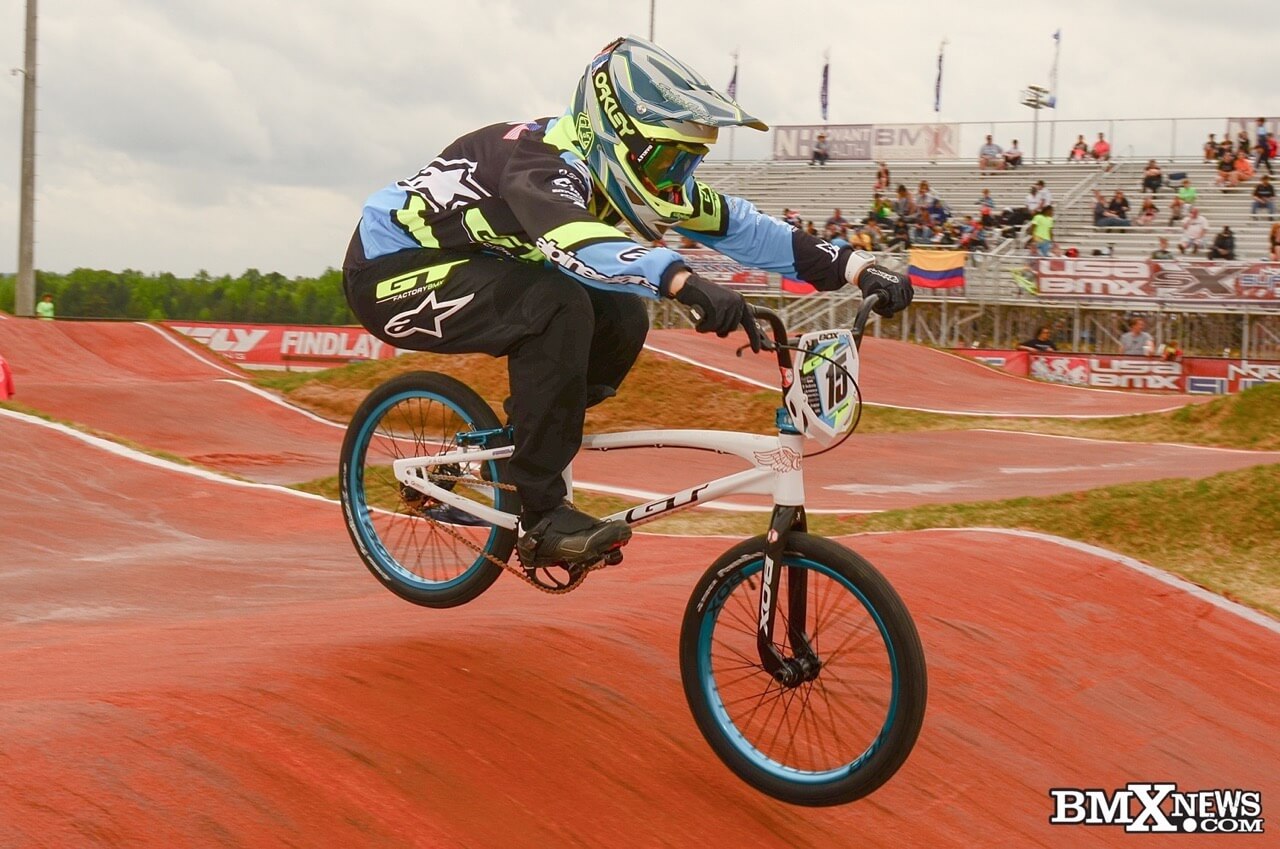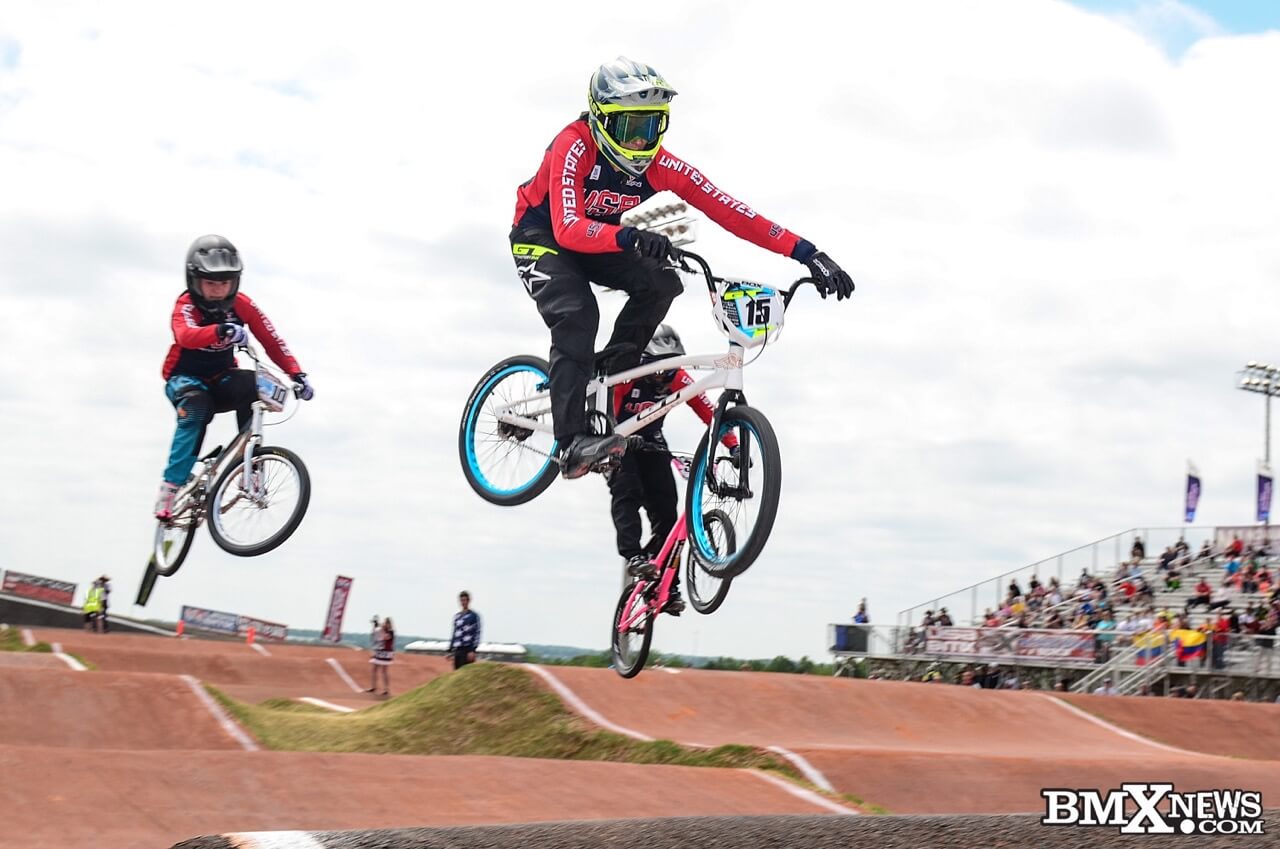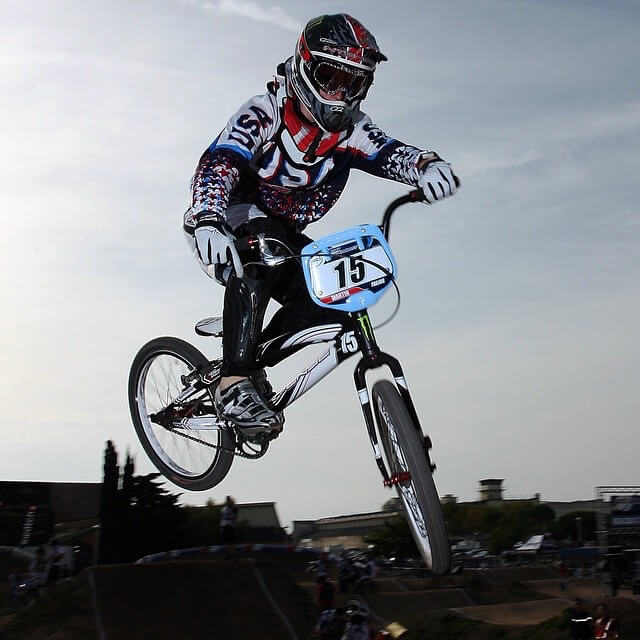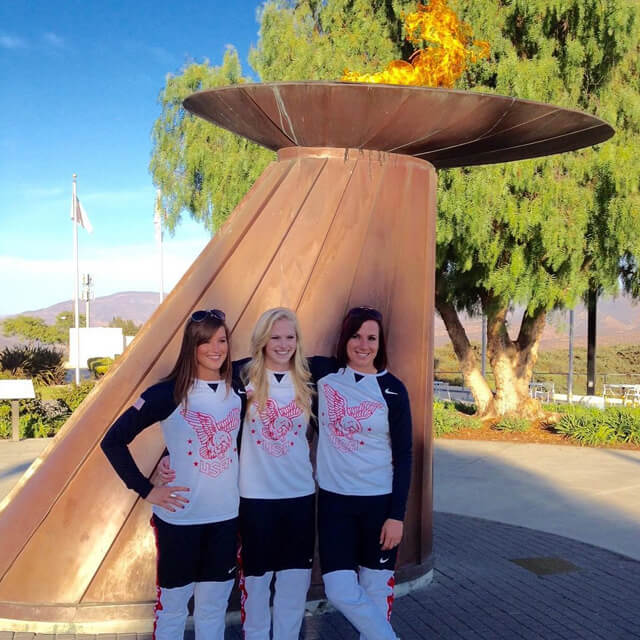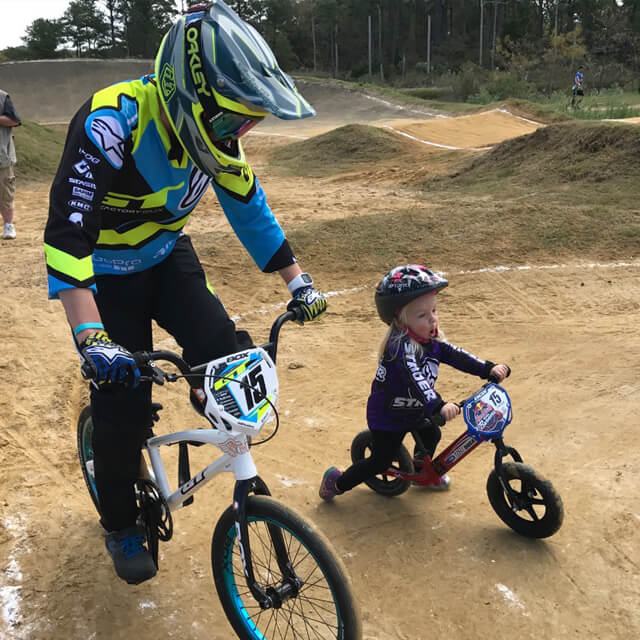Arielle Martin | Interview
January 2017
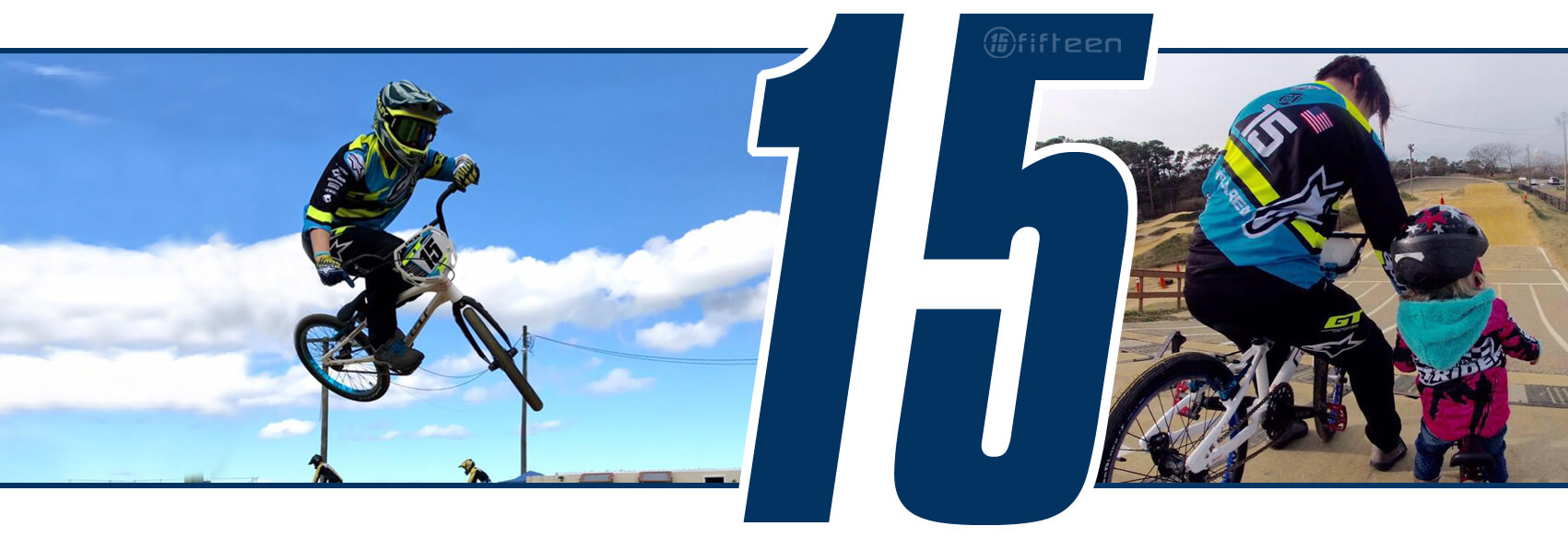
Retired (for the most part) from competitive racing she still has plenty of challenges ahead of her … USA Cycling board member, coach, mountain biker … BMX mom … and she’s still having fun on her BMX …
Arielle: I was among the lucky first generation that got to pick career numbers back in 2006. I was newly engaged and my husband had just joined the army, I wanted something that represented him and 15 Tango is his MOS (military identifier) so I went with 15 and it has been special to me ever since!
15: You have been ‘retired’ for a while now, although you still clearly spend a lot of time around the sport in many different guises … do you miss the thrill of regular racing?
Arielle: Yes and no, I still have that competitive itch that I feel the need to scratch a few times a year but I also feel like I had my time racing BMX (23 years non stop to be exact) and I’m pretty content with where I am at in life now. I get to ride and race as much or as little as I want without pressure or obligations, which is pretty fun. I’m training a bit more for mountain bikes these days but ill never leave the BMX bike behind, it was my first love and I plan to always ride it.
Arielle: I love the rush of the 8m and I’ll probably hike up that hill as long as my body lets me but a full return to the circuit isn’t on the cards for now. I plan to do a few BMX races this year including the NASX Rock Hill in the spring but I don’t have the time to dedicate to training for it like I used to and I’m too proud to be moto fill so if I cant be competitive I’ll just ride it for fun.
15: You’re clearly very comfortable with both wheels off the ground … given the choice are you coming off an 8m hill to a big jump or do you prefer the more traditional ABA type tracks?
Arielle: I think most people “prefer” what they are good at and I was good at SX. I liked jumping even as a little kid and as such have always favored more technical tracks over the straight power tracks.
‘I still have that competitive itch that I feel the need to scratch a few times a year but I also feel like I had my time racing BMX’
Arielle: I’ve been on the USA Cycling BMX Sport Committee as the female athlete rep since 2013 but this year they bumped me up to the big board. I’m pretty excited to be on the front lines of where the decisions get made and ultimately my goal is to be a strong voice to get kids on bikes and into BMX. Every cycling discipline benefits from a kid being on a bike, as they grow older many bmxers transition into different forms of cycling so if we can grow the sport from the ground up we all benefit.
15: The US had an amazing Olympics down in Rio with a Gold and Silver, do you think those medals will result in more kids on bikes at the races? From here in Europe we probably don’t see it all but has Conor’s and Alise’s success been exploited to its fullest potential to build the sport?
Arielle: We saw a fair bit of media exposure with them right after the games which was awesome but it has since tapered off, which unfortunately is fairly normal for most American Olympians. Once the games end the American public forgets and focuses back on football, basketball or baseball the three big American sports. What Connor and Alise did as American BMXers is phenomenal and I think their success has been celebrated within the sport here quite a bit, but we’d all like to see them get a bigger piece of the American sports pie.
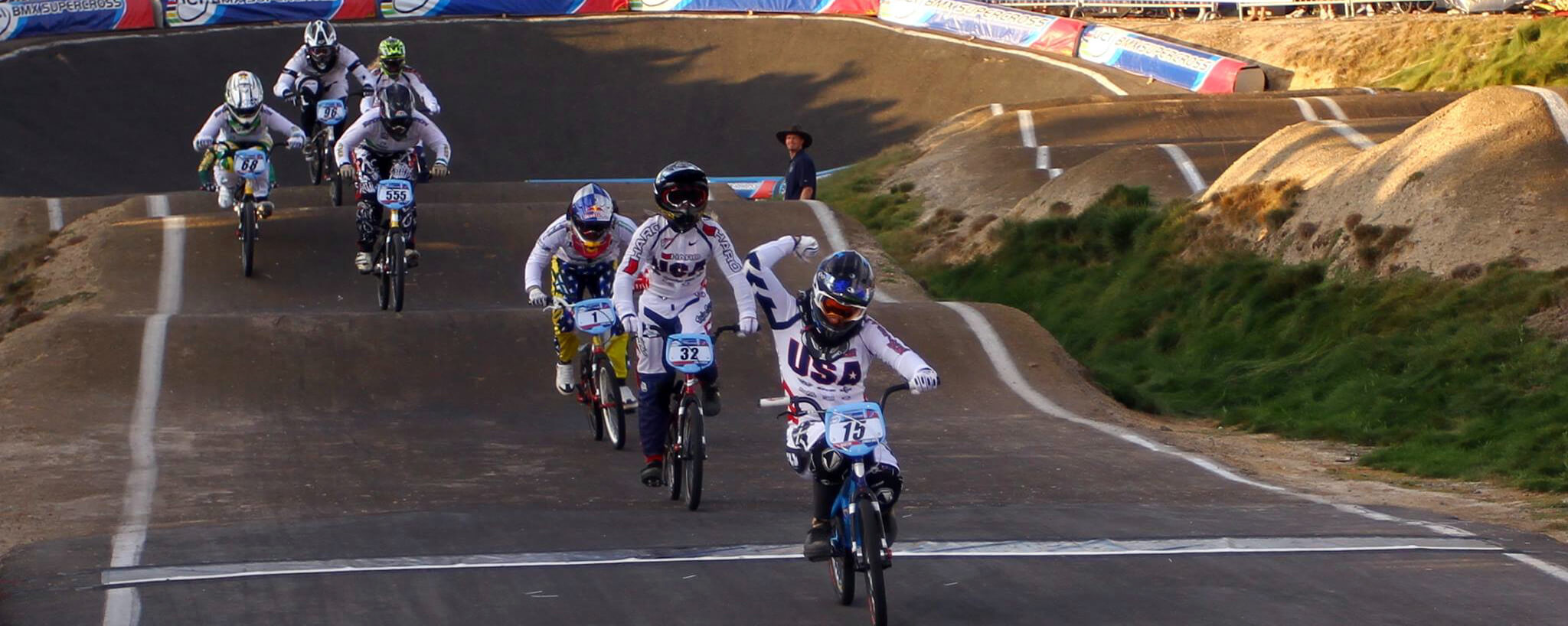
Arielle: Beijing was hard because we deserved two American spots and only got one, the points system was just a bit screwed up back then and we as a country didn’t take advantage of it like some others did prior to worlds. When I crashed I was the only American carrying any significant amount of country points so that single event lost our second spot. I went from first to not going in a blink of an eye. I was still pretty young with plenty left in the tank and missing the games just fuelled my fire as an athlete and made me a better person as I got to help Jill train to win a medal. Jill is one of my best friends now and I’ve made peace with Beijing. London still stings and I suppose it always will. We (my team) did everything right that round. We qualified two spots; I was coming off a 4th at Worlds in Birmingham and had won a World Cup a few months before so I felt ready. The crash the day before the flight to London was a total fluke with my chain coming off up while approaching a jump and locking my rear wheel so I had no control over it, which was the most frustrating part. I was pretty depressed about it for a while, but not long after I was released from the hospital my husband’s brother died in a freak cycling accident, which put a lot of things into perspective for me. Missing the Olympics sucked but I still had my life and my body and a multitude of things to be grateful for. Looking back now I could do without the crashes but I don’t regret any of the work or experiences that went into that Olympic journey.
‘Unless the industry changes the vast majority of pros will be making below what the US poverty level is this year if they are living on money from BMX alone’
Arielle: There were a few years where the limits were pushed farther than most wanted but it has since dialled back. We may see more progressions to come as athletes get faster and more skilled but for now I think it has stabilized a bit.
15: Even though you didn’t make it to the gate at London 2012, you were still involved in one of its most iconic moments. Did you know Brooke was going to hold up her glove with your initials? Were you watching it on TV … were you able to watch it from the hospital bed?
Arielle: I had no idea Brooke was going to do that. I had multiple surgeries while in the hospital and hadn’t really been in touch much with the team. I was pretty bitter about the whole situation so I swore I wasn’t going to watch it and I didn’t see any of the time trial day but when it came time for the big show I couldn’t resist and saw it all play out on my iPhone from the hospital bed in the wee hours of the morning in San Diego. When the camera panned to Brooke I unexpectedly burst into tears. She will probably never fully understand and I can’t even fully describe what that moment meant to me, but I will always love her for that.
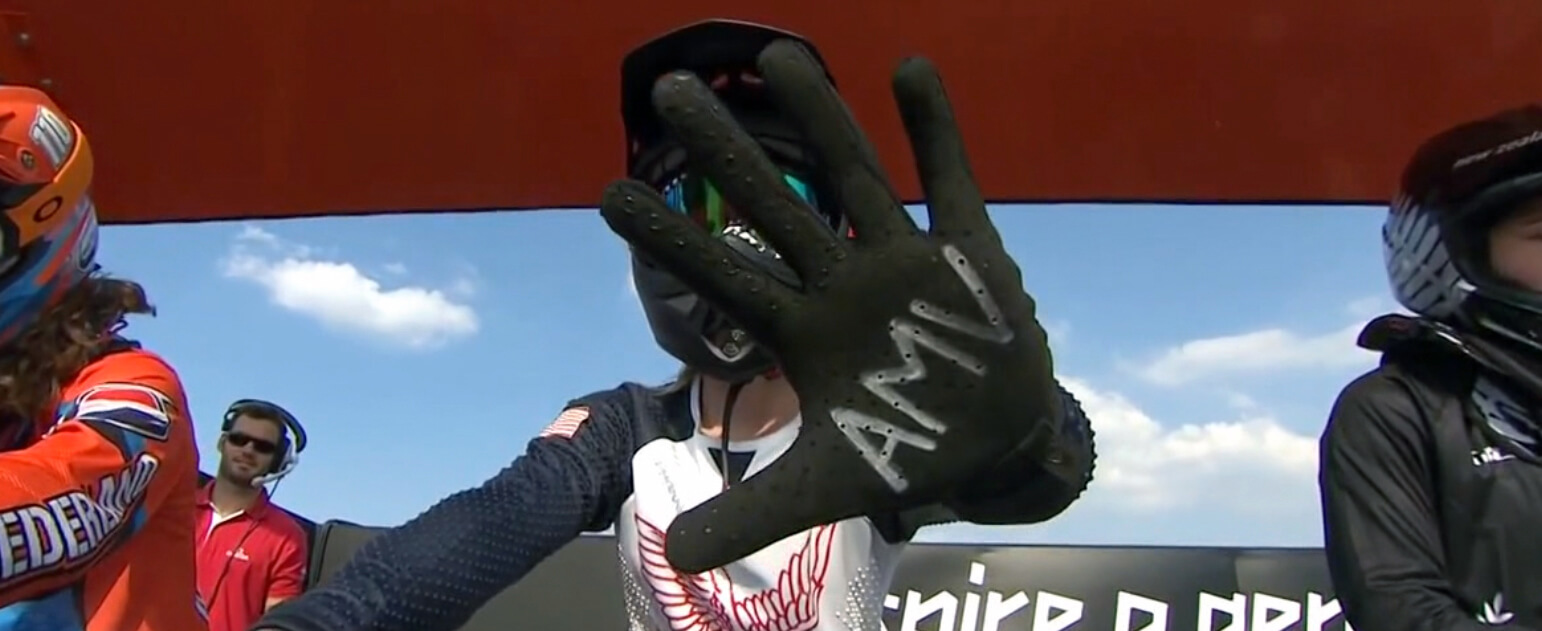
Arielle: There are some rippers moving through the ranks for sure. Jordy Scott and Payton Ridenower are young chicks that can jump bigger jumps than a lot of boys so I’m excited to see them develop over the next few years. On the boys side in the US the field is pretty deep with talented kids like Bryce Batten, Triston Judd, Jesse Welch, Josh Banuelos and Alec Bob. Its hard to predict almost 4 years out who will be ready for Tokyo, but my honest opinion is that the big Olympic players from this year will still be around and hard to beat. Connor, Corben, Alise, and Brooke will still be in their twenties and plenty capable for a third berth if they stay healthy and motivated so those up and coming rippers will have their hands full. Anything is possible though!
15: Can you see anyone upsetting the dominance of the top few in the Elite Women in the foreseeable future? Pajon and Post seem to have found a new level last year …
Arielle: Alise and Mariana are definitely raising the bar for the women but the rest of the field is moving right up with them. A few years ago Stefany Hernandez wasn’t making mains and she has a world title now. I think we will see more girls like her stepping up and sticking their wheels in with the veterans.
Arielle: Coaching at the highest level is definitely where I want to be. I have a harder time teaching the basics and coaching less experienced riders because I’m pretty intense with my training and like that elite level of structure and work. I find myself having to dial it back sometimes for my younger riders but just having the opportunity to help someone achieve their goals in the sport is more fulfilling than I thought it could be. When one of my boys won worlds last year it was one of the most gratifying feelings I have ever experienced.
15: The UCI’s equal pay rule came into effect this year and it looks like the USA BMX ‘win payouts’ now reflect that but the totals seem to have been rounded down. Good for women in the sport? Good for the sport?
Arielle: It’s complicated haha. As a women I like the idea of equal pay, I could argue that it is harder for a woman to make it in a male dominated sport so they deserve equal pay but I could also argue that its not fair when the men have sometimes double or triple the rider count. I am starting to see the business side of things more as I’ve been working on my MBA and dealing with USABMX and USA Cycling in a different aspect so I can understand their financial position as well. I think decreasing prize purses is never a good thing, however I don’t feel like it is USABMX’s sole responsibility to provide a living for BMX racers who rely on prize money to get by. I think there is a bigger problem within the sport in terms of sponsorships (and lack thereof for pros) less kids buying bikes, and too many bike companies putting each other out of business.
15: In reality how hard is it for a professional rider to make a decent living from the sport now?
Arielle: Unless the industry changes the vast majority of pros will be making below what the US poverty level is this year if they are living on money from BMX alone. There are a handful of riders, say 3 or 4 guys and maybe 2 girls in the US that have respectable paid sponsorship deals. Some of this I think is the current amateur sponsorship model where every amateur kid thinks its his or her right to a sponsorship and companies that support that model believing that amateurs are more valuable than pros. The bigger problem I think is just less kids on bikes in general and less entry level bike options to introduce kids to the sport and grow the industry. I helped a friend get her kids bikes for Christmas and on her designated budget I was unable to get a BMX race style bike and had to settle for freestyle bikes for them instead. The kids were stoked on bikes and going to the BMX track so I think more kids and parents would be into it if they knew about it and had an affordable entry level bike option.
Arielle: I think there is a better mindset these days about what is and isn’t acceptable for a girl to do which is cool. Girls now have role models like Mariana and Alise who show them what is possible for a girl to do on a BMX bike. When I was growing up there wasn’t even a women’s pro class so we’ve come leaps and bounds since then. In general I just want to see more kids on bikes regardless of gender. I’d like to see tracks reach out to local schools and youth programs and create their own Beginner Leagues like Donny Robinson has been doing. If every track does that imagine how our numbers would grow!
‘She will probably never fully understand and I can’t even fully describe what that moment meant to me, but I will always love her for that’
Arielle: She’s already racing her strider at our local track haha, but yea I plan to be around for a while regardless of whether or not she chooses to stay in the sport.
Photos: Arielle Martin | BMX News.com | BMX Mania | Craig Dutton | Mark Lee-Sing
